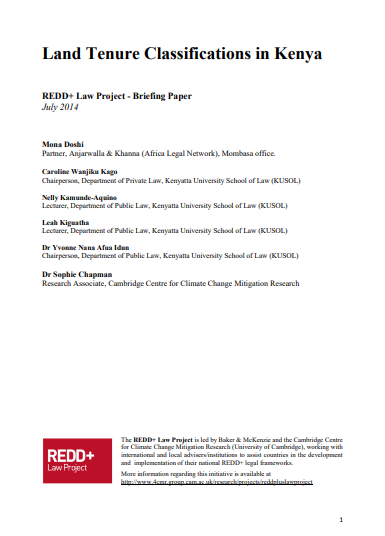Un cadre de suivi-évaluation pour appuyer l'agenda africain sur le foncier
A monitoring and evaluation framework to support the African agenda on land
L'IPF soutient le plan de travail de l'Afrique d'Afrique australe sur la politique foncière
BURMA/MYANMAR: Farmers face prison sentences for trespassing and move to remote prisons
President of Myanmar, U Thein Sein, announced that the government cannot give back over 30,000 acres of paddy land that the state has been using since it was confiscated by the army two decades ago. On the one hand the President ordered state and regional governments and land management committee to cooperate with members of the parliament to solve the problem of land grabbing cases. On the other hand he has announced the government cannot handover some land back.
Agrosilvopastoral Systems in Northern Thailand and Northern Laos: Minority Peoples’ Knowledge versus Government Policy
Traditional agrosilvopastoral systems have been an important component of the farming systems and livelihoods of thousands of ethnic minority people in the uplands of Mainland Southeast Asia. Drawing on a combination of qualitative and participatory inquiries in nine ethnic minority communities, this study emphasizes the complex articulation of local farmers’ knowledge which has been so far excluded from governmental development and conservation policies in the northern uplands of Thailand and Laos.
Evolutionary Mismatch as a General Framework for Land Use Policy and Politics
Patterns of human land use (LU) necessarily transform the land systems that sustain and contain them. Importantly, the impacts of such transformations are not isolated in space and time. LU management decisions that are made at a given geographic unit regularly impact both human and nonhuman well-being beyond the spatiotemporal boundaries of that unit. To superintend the conflicts that arise out of such circumstances, human LUs are generally subject to institutional regulations.
Unfinished business: Kenya’s efforts to address displacement and land issues in Coast Region
The report analyses displacement in Coast region and identifies tensions over land tenure and poor land governance as key triggers, and obstacles to durable solutions. It provides examples of land issues underlying displacement caused by generalised violence, disasters and human rights violations, and establishes a close link between tenure insecurity and forced evictions. Disputes arise from competing land claims and incompatibility between formal and informal tenure systems.
Land Tenure Classifications in Kenya
The UNFCCC framework asks countries to include a national REDD+ institutional framework with certain key elements, many of which will draw on existing legal frameworks. For example, as part of their national strategies and action plans (discussed above), countries are requested to address. land tenure issues:1 The importance of land tenure for regulating land use and assigning benefits from REDD+ has been widely noted. Nonetheless, clarifying and then administering land tenure is a complicated issue that presents a challenge for many countries.
REPORT ON RESEARCH FINDINGS, POLICY OPTIONS AND RECOMMENDATIONS FOR
This third report comprises two parts: Part 1 contains an analysis of policy options and recommendations for the preparation of a law on land rights and title restitution. The recommendations are based on LLP’s research findings, its comparative case studies, an analysis of existing legislation and on relevant input of stakeholders that participated in LLP’s roundtable on land rights in June 2004. Part 2 presents LLP’s research methodology, results and analysis for the development of land policy concerning land rights and title restitution.
Contribution à l’Amélioration de la politique foncière en Mauritanie à travers l’usage du Cadre d’Analyse de la Gouvernance Foncière (CAGF)
Le Cadre d’analyse de la gouvernance foncière (CAGF) est un outil de diagnostic permettant d’évaluer le cadre juridique, les politiques et les pratiques en matière de gestion foncière et d’utilisation des terres.
Ce cadre conceptuel a été élaboré par la Banque mondiale depuis 2008 dans le cadre d’un partenariat avec la FAO, ONU- Habitat, le FIDA, l’IFPRI, l’Union africaine et des agences de développement bilatérales, comme outil de diagnostic permettant d’évaluer le statut de la gouvernance foncière d’un pays.






